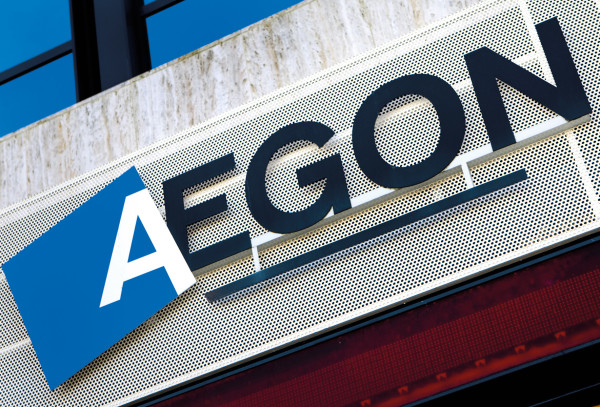

‘We’ve come a long, long way together, through the hard times and the good’, sang Camille Yarbrough, little knowing that a bloke that used to be in The Housemartins would one day turn her song into a global big beat hit.
Fatboy Slim in turn didn’t know it, but there is surely no more fitting sentiment for the journey the platform industry has been on in terms of replatforming.
I know this is a subject we’ve returned to again and again over the past few years in this column, but this time it’s different. There must have been something in the water, because May 2018 saw two of the biggest replatforming programmes finally shuffle, blinking, into the light. Yes, Ascentric and Aegon both took the covers off in May, following on from Aviva’s painful experience in January. Together these exercises represent more than £50bn of real people’s money, so they are not to be sniffed at.
Long time coming
We’ll deal with them in order of seniority. Ascentric has been at its programme for quite some time. There have been many bumps along the road, for all sorts of reasons.
It’s always tempting to be dismissive when these things drag on, but the truth is that Ascentric was trying to do things that few, if any, platforms have done before. For example, it was trying to keep control of the front end of the system – the bit that advisers are used to using – rather than taking the normal user experience that its new tech provider Bravura Solutions supplies. That’s doubly tough, because lots of important, ‘making-it-work’ type kit is stitched into the front end. None of this is simple.
Also, Ascentric came from a bit of a stockbroking heritage, back in the mists, and prides itself on its dealing desk capabilities. Core platform systems in the UK are great at many things, but integrated share dealing is not one of them, and this has added to the complexity.
So Ascentric’s journey hasn’t been easy. One of the things that has carried it through, I think, is the insistence of its leadership that a safe replatforming is better than a quick replatforming. Given that it left ‘quick’ behind a long time ago, it needed to deliver ‘safe’ in spades.
From what we can see, it’s managed that. Now it’s early days, and only the first phase of a programme that will last to the end of the year, but we’ve heard few if any moans about the migration so far. There are a few crunch moments to come – for example, big income batch runs – which should be over by the time you read this. If those are fine, then Ascentric can take a breath and congratulate itself on delivering for its first tranche of advisers, and move on to knocking the remainder down during the rest of the year.
While I’m on the subject, it’s important to note that replatforming isn’t a point in time thing. The huge projects that get to a go-live point are just the beginning. You can’t be confident that the project has delivered for several months after it’s gone live, and some operations experts would say that it takes a year or more.
You don’t know what you don’t know, and every time you run a process in the early months you hold your breath. But over time, you start to relax a little, and eventually things should run smoothly enough.
The big one
Let’s turn our attention to the big beast in the room – Aegon’s assimilation of Cofunds. As I write, its replatforming journey is exactly one week old. The good news is that the new baby appears to be feeding well, albeit keeping its poor parents awake a little at night.
The Aegon/Cofunds guys have been keen to point out that what they’re doing isn’t a replatforming as such, it’s a migration, or an ‘upgrade’ in corporate language. They’ll be upset that I’ve referred to it as a replatforming here, but I should imagine that’s something they’ll get over. But they have a point. Replatforming is when you take a book of business on Technology A, leave it in place and replace the system with Technology B. That’s what Ascentric has done, and it’s what Old Mutual Wealth is doing.
What Aegon is doing is bulk transferring 400,000 retail Cofunds clients (holding roughly £37bn of assets) on to an upgraded version of its existing Aegon Retirement Choices (ARC) platform, which is provided by GBST. It’s already moved 79,000 clients from its third-party business, IPS, on to another version of ARC, and a bunch of institutional money on to a separate technology arrangement with FNZ.
So this is a migration, rather than a replatforming as it’s currently understood. But that’s complicated by the fact that Aegon has also taken the chance to upgrade ARC with GBST, and add in a new front-end portal from Dunstan Thomas, which also handles illustrations.
What’s going on here is a migration on to a system which itself is undergoing a level of upgrading that could reasonably be described as a replatforming. There are a lot of moving parts going on here.
No one has tried something on this scale before. It’s not that long since the deal happened, and chief executive Adrian Grace has not been letting the grass grow. This is a quick exercise; the question is, is it safe?
Initial signs are mixed, but promising. Disclosure: I was involved, along with many others, in some of Aegon’s planning, particularly on what would happen if something really big and important broke early on. Aviva’s troubles provided a useful example of the sorts of unexpected things that can go wrong.
The good news is that none of the work we put in has been needed so far. That isn’t to say everything has been completely smooth, and if you work in Aegon you’re probably pretty upset right now that the past couple of weeks have been sunny, because you won’t have seen very much natural daylight. But that’s the gig with any of these massive projects, and the feeling of relief and elation when things go well usually make up for it. And money. Money helps.
Question marks
Aegon’s issues so far have been:
- The new platform requires users to reset security. Sadly, Cofunds had many advisers who didn’t necessarily log in all the time, but who all fancied seeing what had changed. Hence, password resets, niggles, forgotten usernames and so on went through the roof.
- In general, the demand for the online service was huge in the first days. You can plan for that to an extent, but only to an extent. Some users couldn’t get in, performance was slow, and so on. This will not come as a shock to anyone who’s tried to buy tickets for a big band the minute they go on sale. Things appear to be settling down now.
- According to one report, up to 400 firms are locked out of the web service and having to deal by phone.
- There’s a lot of paper in key processes. Quotes are phone-only as I write, and new business is paper apps. This is obviously not ideal, but as long as Aegon hunts and kills the paper toot sweet, we should view it as a practical way of throttling demand and making sure everything’s running absolutely tickety-boo before opening everything to the world.
- We’ve heard of a few smaller issues, such as some model portfolios not showing up. This is a bit of a pain, but workarounds are in place.
We’d all have loved to see a completely clean launch, but at this speed and at this scale there were inevitably going to be compromises. My earlier point about replatforming being a journey rather than a destination is even more relevant in this case.
Aegon has three tests to pass. The first is getting live in the first place – that’s done. The second is chasing down the launch problems, and I happen to know a great deal of energy is being expended in Edinburgh to achieve just that. But there is still work to do before it can claim it’s passed that second test.
The third test is smooth, silent running. We won’t know about that for a while. The work starts now in making sure that all those first-time runs of the big processes go smoothly.
Aviva’s woes in terms of income (for advisers and clients) took a while to appear; this is why. We don’t know, what we don’t know, but the data in the back looks to be solid and that’s a good beginning.
If what is now clearly the UK’s largest platform business can get through the next eight weeks or so with no major issues, then it will be, for my money, the first platform to deliver a replatforming that is both safe and quick.
As we look forward, the landscape looks very different. We’ve come a long, long way together, through the hard times and the good.
Mark Polson is principal of platform and specialist consultancy the Lang Cat



